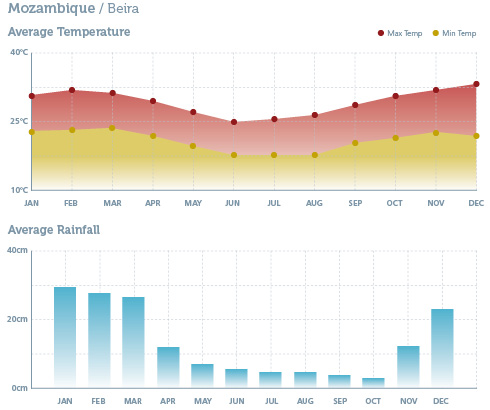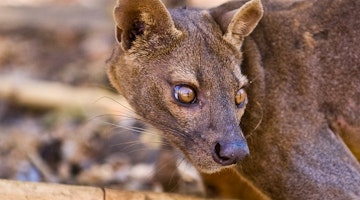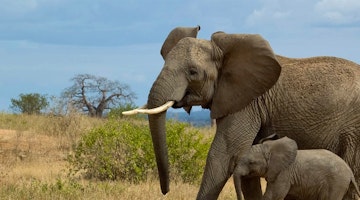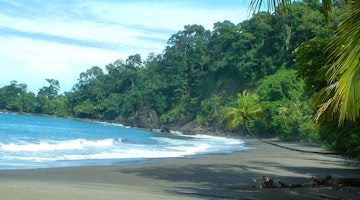Best Time To Visit
When to go
The best time to go to Mozambique is from April to November, although the Bazaruto and Quirimbas Archipelagos are hot year round. There is summer rainfall from December to March with occasional cyclones in February or March. April to November is generally dry in the south but April is still wet in the northern Quirimbas islands.

Getting there
There are daily flights from Johannesburg to Maputo, or we can transfer you by road from Nelspruit, near Kruger Park. Vilanculos is the gateway to the Bazaruto Archipelago and there are daily flights from Johannesburg and Maputo, plus three flights weekly from Nelspruit.
Pemba is the entry airport for the Quirimbas, served by regular flights from Johannesburg and Maputo, plus some from Nairobi and Dar. The last leg to the islands is by light aircraft, helicopter or boat.
Time Zone
GMT +2 hours
Visas
Visas are required for Mozambique. British citizens can purchase visas at their point of entry, currently $10.
Health
Mozambique is a malarial area and precautions should be taken. Yellow fever inoculations are required if arriving from Yellow Fever endemic countries. Always consult your doctor at least six weeks before travel and refer to this useful NHS Website for details of recommended vaccinations for your destination.
Things To Do
- Eat traditional peri-peri prawns with your fingers
- Spend at least a morning snorkelling or diving in the Bazaruto Archipelago
- Charter a boat and try to snag a big game fish
- Take a picnic lunch and find a quiet spot
- Learn about local culture and the country’s fascinating history at Ibo Island
The highlight of Mozambique has to be its beaches – 2500 km of soft sand lapped by the warm seas of the Indian Ocean. But there is much more than this: a friendly, resilient and relaxed population; a distinctive and vibrant culture expressed through art, music and dance; and a unique blend of African, Arabic, Portuguese and Indian influences. Mozambique is also one of the few places in Africa, where true wilderness areas are relatively accessible and not yet taken over by mass commercialism.
History
Mozambique was an important centre for trade between southern Africa and the East from about 900AD. Vasco de Gama landed in Mozambique en route to India in 1498 and the Portuguese set up a trading post in 1505. The country soon fell under Portuguese control and it was administered from Portuguese India until 1752, when Lisbon took over. The main exports were gold, then ivory and slaves. In the twentieth century, agriculture was the main activity: vast tracts of land were administered by private companies, with impoverished black labourers producing cash crops of cotton, cashews and coffee.
In the early 1960s, FRELIMO was formed to fight for independence and an armed struggle began. The Portuguese pulled out in 1975, but their departure was followed by a long civil war, which could not be resolved until apartheid was finally abandoned in South Africa. The first multi-party elections were held in 1994 and the country has remained peaceful and stable ever since. Mozambique joined the Commonwealth in 1975. Although the civil war has been over for many years, there was an aftermath of poor infrastructure and dilapidation that kept European tourists at bay until relatively recently.
Now that Mozambique has been ‘re-discovered’ as a destination, the shortage of high quality tourist beds in the country means that even a small increase in demand is hard to accommodate.
Island tourism
For some years, the Bazaruto Archipelago has been the main centre for European tourism. The larger islands, Benguerra and Bazaruto, both have lodges. Vilanculos is the point of entry, and there are some reasonably good lodges on the mainland itself.
Recently, the isolated far north has been opening up to tourism, and a number of excellent lodges have opened in the last few years. This area offers a very special experience, and tourism to the Quirimbas will continue to increase as air access becomes easier.
National Parks
Most of the development has been on the coast, but Mozambique’s national parks are slowly being restocked and rehabilitated. Gorongosa National Park is one of Mozambique’s flagship conservation areas with a remarkable history; before the onset of civil war in the 1970’s, the Park was considered one of Africa’s finest with large populations of herbivores and predators alike.
FAQ
There’s never a shortage of travel consultants wanting to go on a familiarisation trip to Mozambique and when you look at the photos, it’s no surprise! Here Shelley Phillips and Janine Bullen answer some of the questions we are often asked about this highly rated holiday destination.
Why choose a holiday in Mozambique?
Mozambique has some truly magnificent Indian Ocean beaches, completely untouched by mass tourism and away from the crowds, where there’s excellent snorkelling and scuba-diving, charming boutique lodges and magical sunsets. As one of the few previously Portuguese colonies in Africa, which also has Swahili / Arab influences in the north, Mozambique has unique and fascinating cultural influences.
How do we get there?
Southern Mozambique can be accessed from Maputo with daily flights from Johannesburg or even from South Africa, via the KwaZulu Natal border. The Bazaruto Archipelago is easily accessible from Johannesburg on a daily basis and the Kruger area with direct flights three times a week. Northern Mozambique is also accessible via Johannesburg, other Mozambican hubs such as Maputo, Nairobi, Dar es Salaam, so it a possible add on to an East African safari. Once into the major hubs you are transferred to your lodge by road, boat or aircraft.
What’s the best way to travel around the country?
Mozambique is a relatively big country which means it makes sense to use the extensive internal flight networks. Once you are away from the centres, in remoter parts, its best to travel by small plane, boat or private road transfer.
If there was one thing I shouldn’t miss, what would you recommend?
The unexplored and well preserved coral reefs are a must and it may be worth considering taking a diving course ahead of your trip, although many can be seen even if you are just snorkelling. Don’t miss the culture and history however, even if you just take a simple city tour of the capital Maputo as you pass through or spend time in the small fishing village of Vilanculos, as you head to Bazaruto Archipelago, or Pemba when en route to the Quirimbas. If you are in the north, the crumbling historic towns of Ibo Island and Ilha de Moçambique are facinating . That’s more than one thing, but you couldn’t visit Mozambique without eating the seafood – it’s heavenly. So make sure you eat peri peri prawns with your fingers!
See our selection of Mozambique Holidays .
Is Mozambique safe?
In major cities like Maputo petty crime can be common place, and caution should be exercised. Our advice would be to leave valuables you don’t need at home, or in your room safe. Really a holiday in Mozambique is a very relaxed affair – it’s probably the place where the idea of barefoot luxury really came into being, as often shoes aren’t even required at dinner time.
Can I drink the tap water?
We’d advise you to play it safe and only drink bottled water – it’s widely available. Lodges will always advise if the water is safe on-site.
Is English widely spoken?
English is spoken by all our guides and those in the hospitality industry, and in practice its pretty widely understood. Keep in mind this is a developing country and many lodges take pride in using the local village staff, so your requests may not always be understood the first time around. This is improving all the time however and lodges will often show you the training and education projects that they are involved in. Many lodges in Mozambique are closely involved with their local communities.
What is the local cuisine like?
Mozambican cuisine uses lots of fresh fish and seafood. The Portuguese presence in the country for nearly 500 years has greatly influenced the food and flavouring. Vegetarians will enjoy foods like cassava, paozinho and maize while Portuguese dishes like Inteiro com Piripiri and Prego are common place.
How much of a culture shock is travelling to Mozambique?
Poverty is apparent in many areas but your visit can help to improve the general standard of living, from community upliftment to the preservation of natural habitats and the wildlife it supports. Many of the hotels and lodges we use directly support local communities and charities. The NEMA foundation, for example, was one of the first charitable funds developed by lodge owners; Amy and Neal Carter the owners of Guludo Lodge in the Quirimbas are a shining example of what can be achieved by integrating philanthropy into a tourism business. If you are interested in responsible tourism, do ask us to highlight which lodges we feel really do make a positive difference to local people.
Do I need to get any vaccinations ahead of travel and/or malaria tablets?
Malaria precautions are recommended and you should always consult your doctor or travel clinic at least six weeks ahead of travel. Yellow fever inoculations may be required - if you are arriving via East Africa for example – but again always get up to date professional advice.
I am pregnant, can I travel to Mozambique?
As Mozambique is a malarial area, we wouldn’t advise travelling here. Do discuss all travel plans with your doctor.
Shelley Phillips
Travel Specialist
Looking for inspiration?
You'll find expert travel guides, holiday ideas and insider tips now on the Rainbow blog

Top 5 First Time Safari Destinations

10 Strange Animals and Where to Go to See them


Salar De Uyuni - The World's Largest Salt Flat


Top five South Africa Safari lodges

Sustainable Tourism In Corcovado National Park, Costa Rica

Why Choose Us?
Passionate travel experts
- We've been leading wildlife travel since our first South Africa tours over 25 years ago
- Our Travel Specialists have lived in their specialist area for years
- We work with local guides to immerse you deeper in our diverse range of experiences
Personal & tailor-made
- You'll speak to your own expert who'll share their first-hand knowledge
- We'll make your itinerary seamless with 24/7 emergency contact available
- Your Travel Specialist will listen to ensure you have the best chance of seeing the wildlife you love
Responsible by nature
- We take care to actively contribute to the conservation of environments we visit
- For select countries, we make a charitable donation on your behalf when you make your booking
- We've partnered with conservation experts and NGOs to curate responsible tours
For the latest travel advice from the Foreign, Commonwealth and Development Office check www.gov.uk/travelaware
